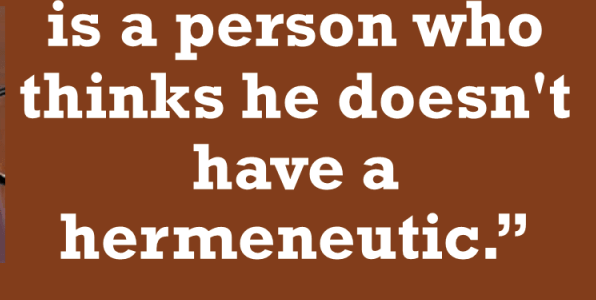Ted Grimsrud—February 27, 2017
It is common in my circles of friends and acquaintances to encounter people who are former fundamentalist or evangelical Christians and who now distance themselves from that past faith perspective. Often, the rationales for the changes have to do with the Bible. For the sake of opposition to violence, to religious arrogance and exclusivism, to judgmentalism and the like, my friends will say the Bible is so hurtful, so damaging. Maybe they will add that they like Jesus but they see the Old Testament as profoundly problematic—and maybe Paul and Revelation too.
I am sympathetic with such sentiments. I spent a period of my life in my late teens and early twenties as first a fundamentalist and then evangelical Christian. Starting with my embrace of pacifism at the time of my 22nd birthday, I fairly quickly came to distance myself from those traditions (I tell the story of that evolution here). And I agree that the way the Bible is used by many conservative Christians is problematic and helps underwrite violence and other hurtful attitudes and actions. And I do think it is true that there are materials in the Bible that do lend themselves to hurtful uses.
However, at the same time I love the Bible and most of my theological work consists of engaging the Bible as a positive resource for peace (several of my books focus on the Bible and peace: see, for example, Triumph of the Lamb; God’s Healing Strategy; Instead of Atonement; and Arguing Peace). I often have been told by post-fundamentalist friends (and others) that while they admire my attempts to wring some peace from the Bible, they think I am engaged in spin, at times even in ways that seem dishonest or at least overly and misleadingly optimistic.
I had one such conversation just recently after preaching a sermon. As we talked, I realized that my friend was actually still reading the Bible in a quite conservative way. It’s just that now she disagrees with what she finds there. So I suggested that it would help if she could move past her fundamentalist hermeneutic. She agreed, but also noted that such a move is very difficult. Not so much because she still wants to believe in that approach, but that it is so deeply ingrained in her psyche that she can’t simply by a quick and easy decision get rid of it.
One small aid to help a post-fundamentaist move away from a fundamentalist biblical hermeneutic might be simply to articulate what a post-fundamentalist approach to affirming the Bible as a peace book might look like. Continue reading “Exorcising the ghosts of fundamentalism”
